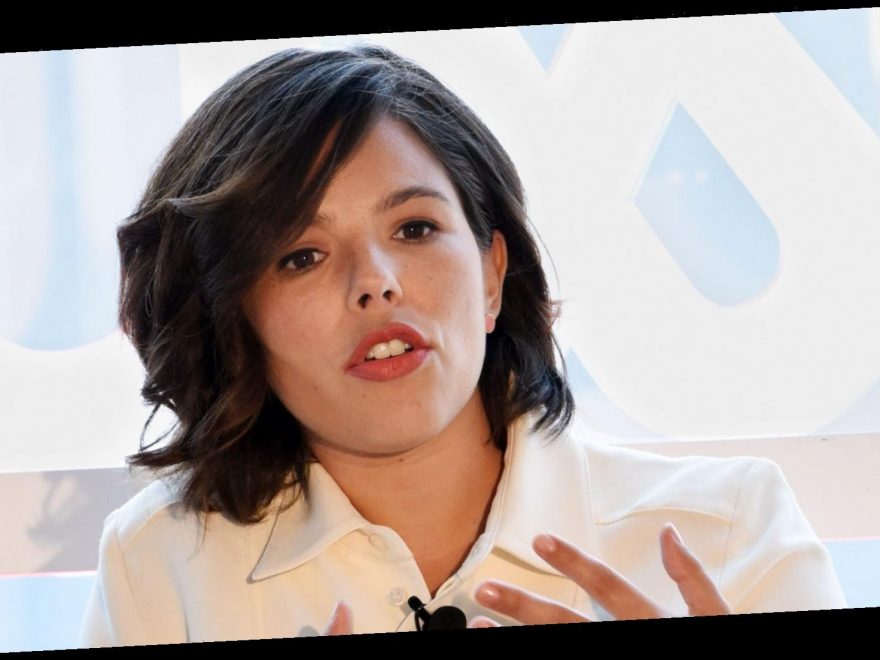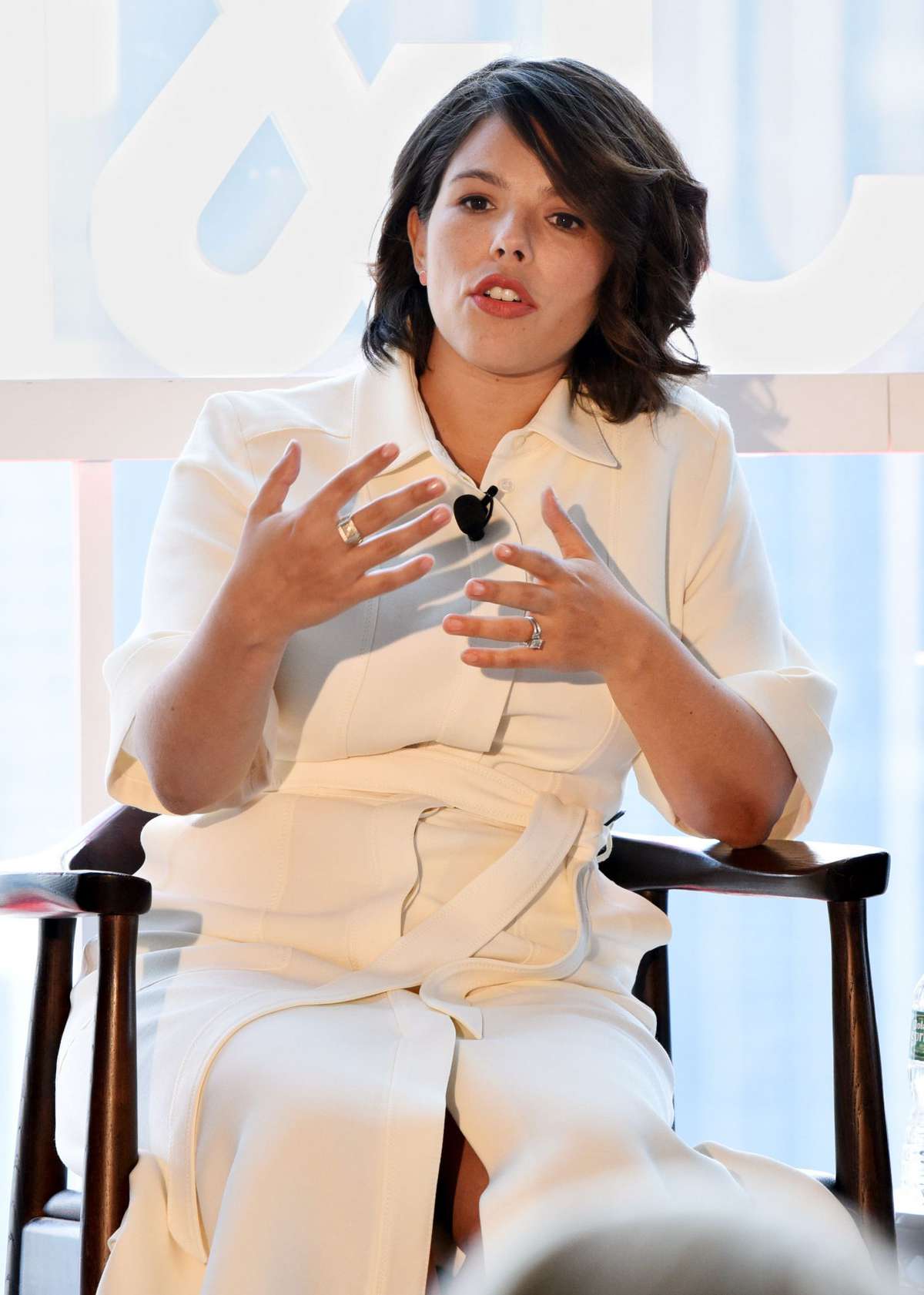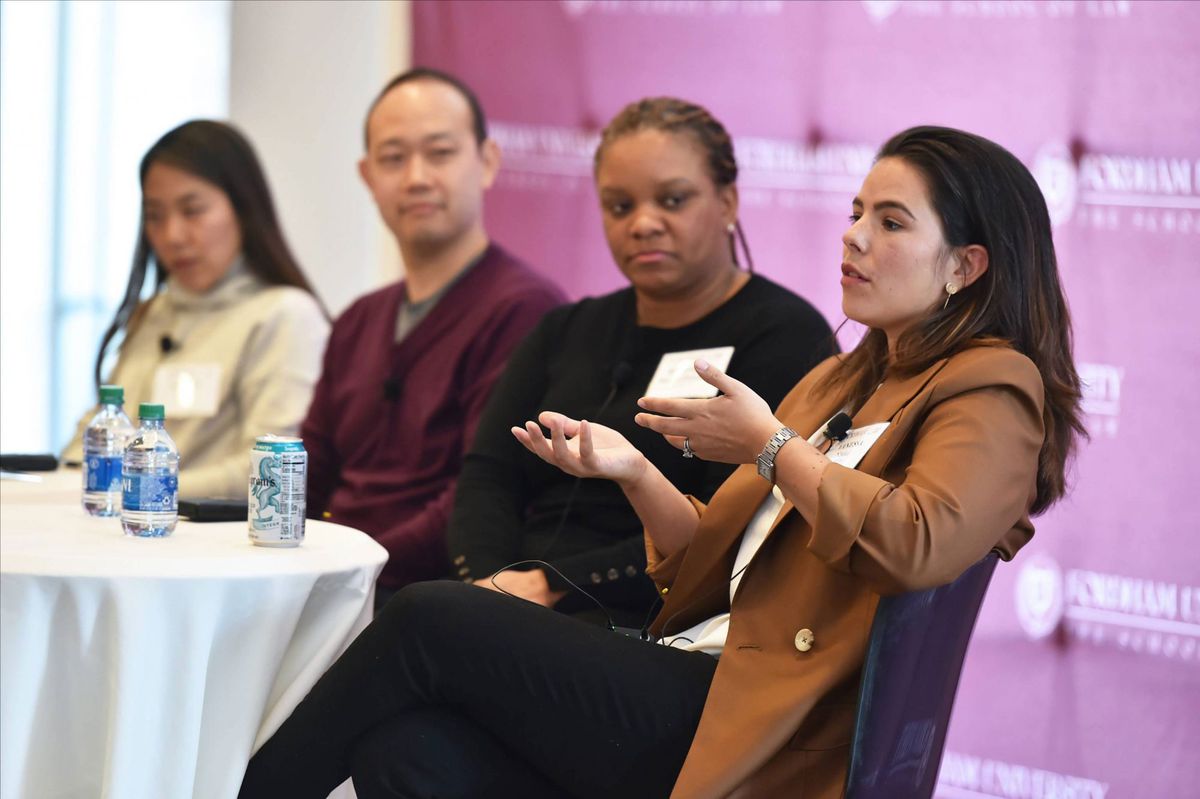Vanessa Nadal wants to change the way we shop for beauty products, and the attorney, chemical engineer, MIT grad, and adjunct professor is just the woman to do it.
Nadal may be married to Lin-Manuel Miranda, the creator and Golden Globe-nominated star of Hamilton, but it's safe to say she's just as 'non-stop' as her husband. To wit: She was featured in this year's Badass Women issue of InStyle magazine, for her work to dispel beauty myths and bring about a safer, more transparent industry. The lawyer and mother of two (she and Miranda share Sebastian, 6, and Francisco, 3) isn't keeping all the beauty know-how to herself; she has combined her passions and experience to co-create and teach a first-of-its-kind course at the Fashion Law Institute at Fordham University on cosmetics regulations.
In the class, she dives into the science of skin ("because you need to know what you are regulating," she says), the history of cosmetics laws, and the deeply misunderstood realm of how federal agencies do — and don't — keep it all together. Outside of the classroom she's contributing to a textbook on fashion law by the Fashion Institute at Fordham's Law School, and sometimes trying to explain the complexities of her career to her husband. "The section of 'Non-Stop' [in Hamilton] where Burr and Hamilton are lawyers together always amuses me," Nadal says. "We joke that that's what Lin-Manuel thinks I do."
Ahead, Nadal gives a primer on what we're getting wrong about beauty-industry safety (a lot), what she hopes to change (also a lot), and how she makes sure to buy products she knows will be safe and effective for her skin (it's easier than you think!). Read on, we swear you'll feel 10 times smarter after.
Everything We Think We Know About Beauty-Product Regulations Is Wrong
Claims have been circulating for years that the United States only regulates 11 ingredients in cosmetic products, while the European Union has over 1,300 restricted ingredients. But Nadal is here to bust that beauty myth.
"The biggest misconception is that the U.S. does not regulate cosmetic ingredients as much as other countries do," she says. "We don't regulate exactly the same way, but if you know where to look, there are many more ingredients regulated for use in cosmetics — and, yes, the cosmetic companies and government agencies know this."
RELATED: California Is Banning 24 Ingredients from Beauty Products — But What Does This Really Mean?
But Nadal says that companies and bloggers didn't just pull the number 11 out of thin air. This is the number of prohibited categories listed in the FDA's Code of Federal Regulations.
"These categories actually include a few hundred individual chemicals," she explains. "But there's more: in the U.S., a cosmetic that includes an active drug ingredient will also be regulated like a drug." That's actually good news because, as she explains, a majority of the FDA's budget is dedicated to monitoring drug safety, food, animal medication and even tobacco, while cosmetics regulation is wedged into the 1.6% of the budget earmarked for "Other Programs."
‘Clean,’ ‘Natural,’ and ‘Chemical’ Are Baseless Beauty Buzzwords
There are a slew of beauty buzzwords out there that can be incredibly misleading, which Nadal says is by design.
"It is illegal to misbrand cosmetics, which means that labeling cannot be 'false or misleading,' says Nadal. "But there's room for subjective interpretation when it comes to 'buzzwords,' also known as 'claims.'" So for instance, a brand can make up its own definition of the word "clean" and then say all of its products are that.
RELATED: Everyone Wants to Use Clean Beauty Products, But Does Anyone Know What "Clean" Really Means?
"'Clean' is a problematic term," says Nadal. "The only irrefutable definition of clean is 'free from dirt,' and for that you just need soap," she says. "You'll notice that 'clean' is usually used to describe a brand, not an individual product, probably to avoid misbranding laws."
But the buzzwords that really get under her skin are "chemical" and "natural."
"It's the demonization of the word 'chemical' and the deification of 'natural' that bothers me," she says. "Everything is made of chemicals! You and I are made of chemicals. And all natural products are made of chemicals. 'H2O' is not a funky way to say water, that is its chemical name."
On the other hand, she adds, just because something is "natural" doesn't imply that it's safe. There are many ingredients found in nature that can be harmful. "Arsenic is an element on the periodic table found naturally in volcanic soil, and it was eaten by women in the 1880s to achieve pale skin," Nadal tells us. "Arsenic is also a poison that destroys red blood cells, can cause blindness, baldness, and, in higher doses, death." Nature!
How To Choose Safe Products — Plus, Vanessa’s Favorites
With all of the jargon flying around, it can be hard to know which products to trust. Nadal recommends checking out a brand's website (look out for their interpretation of 'clean'), consulting with your dermatologist to determine which ingredients address your skin's needs, and reading product labels.
"By law, all cosmetic products must bear a 'declaration' [on the label] that lists all ingredients (except fragrance ingredients)," she explains. And then, shop away — because the FDA prohibits companies from selling products that have been deemed harmful, or that were made or stored in unsanitary conditions. "There is enormous reputational and financial incentive to adhere to [these rules]," she says. Which is why she generally feels safe using any products she finds on the shelves of reputable stores.
When it comes to her own routine, she says she's kind of a minimalist. She sticks to her trusty mascara and swears by her NARS stick blush and Anastasia BH eyebrow powder for a simple everyday look. She loves to add a lipstick that "looks great, feels great, and stays on," and for that she trusts MAC.
At the beginning of the pandemic, Nadal, like many of us, found time to experiment with products, so she has now adopted a more thorough skincare routine. "In the morning, I apply vitamin C for skin brightening, moisturizer if I feel dry, and sunscreen as needed," she tells InStyle. "At night I layer a retinol product under a moisturizer. I also use an acid peel once a month (my goal is weekly but, #momlife)."
On Family Life During the Pandemic
Like everyone else in the last year, Vanessa, Lin-Manuel, and their children have had to adapt to the many changes the have come with the ongoing global pandemic.
"I miss my friends, but I feel super, super blessed to have been able to safely bubble with grandparents or our nanny at different times over the past year," she says. They have even found some positives to their time together. "There have been several silver linings that I believe are not unique to us: regular family dinners, a stronger sibling bond between our kids, getting outside more," she says.
She also dove headfirst into online learning with her older son. ("Distance learning looks more like homeschooling in kindergarten and first grade.") And she's put her studies and that MIT degree to good use making sense of the news. "I feel lucky to be able to draw upon my training as a chemical engineer as I dive into the research on COVID-19," which she says has helped her family make informed decisions during the ongoing pandemic.
"This kind of stuff sticks in my brain — unlike, say, how music notes work: the number of times my husband has explained a key change to me…" she jokes.
Source: Read Full Article


